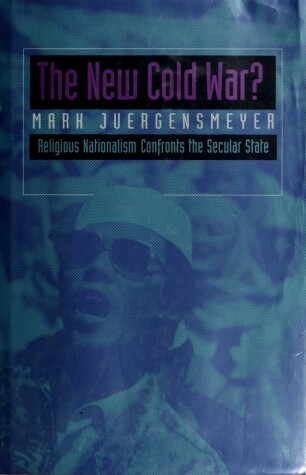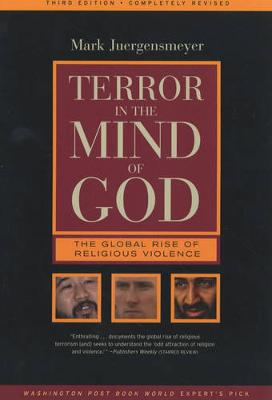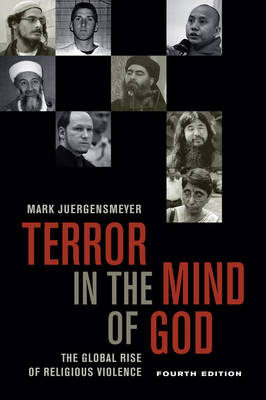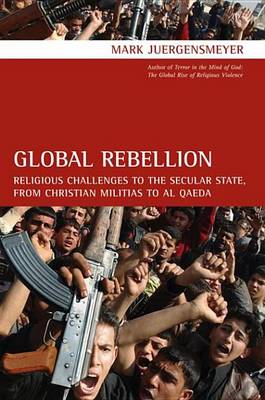Comparative Studies in Religion and Society
5 primary works
Book 5
The New Cold War? Religious Nationalism Confronts the Secular State
by Mark Juergensmeyer
Published 10 May 1993
Will the religious confrontations with secular authorities around the world lead to a new Cold War? Mark Juergensmeyer paints a provocative picture of the new religious revolutionaries altering the political landscape in the Middle East, Asia and Eastern Europe. Impassioned Muslim leaders in Egypt, Palestine and Algeria, political rabbis in Israel, militant Sikhs in India, and triumphant Catholic clergy in Eastern Europe are all players in Juergensmeyer's study of the explosive growth of religious movements that decisively reject Western ideas of secular nationalism. Juergensmeyer revises notions of religious revolutions. Instead of viewing religious nationalists as wild-eyed, anti-American fanatics, he reveals them as modern activists pursuing a legitimate form of politics. He explores the positive role religion can play in the political life of modern nations, even while acknowledging some religious nationalists' proclivity to violence and disregard of Western notions of human rights. Finally, he situates the growth of religious nationalism in the context of the political malaise of the modern West.
Noting that the synthesis of traditional religion and secular nationalism yields a religious version of the modern nation-state, Juergensmeyer claims that such a political entity could conceivably embrace democratic values and human rights.
Noting that the synthesis of traditional religion and secular nationalism yields a religious version of the modern nation-state, Juergensmeyer claims that such a political entity could conceivably embrace democratic values and human rights.
Book 5
Will the religious confrontations with secular authorities around the world lead to a new Cold War? Mark Juergensmeyer paints a provocative picture of the new religious revolutionaries altering the political landscape in the Middle East, South Asia, Central Asia, and Eastern Europe. Impassioned Muslim leaders in Egypt, Palestine, and Algeria, political rabbis in Israel, militant Sikhs in India, and triumphant Catholic clergy in Eastern Europe are all players in Juergensmeyer's study of the explosive growth of religious movements that decisively reject Western ideas of secular nationalism. Juergensmeyer revises our notions of religious revolutions. Instead of viewing religious nationalists as wild-eyed, anti-American fanatics, he reveals them as modern activists pursuing a legitimate form of politics. He explores the positive role religion can play in the political life of modern nations, even while acknowledging some religious nationalists' proclivity to violence and disregard of Western notions of human rights. Finally, he situates the growth of religious nationalism in the context of the political malaise of the modern West.
Noting that the synthesis of traditional religion and secular nationalism yields a religious version of the modern nation-state, Juergensmeyer claims that such a political entity could conceivably embrace democratic values and human rights.
Noting that the synthesis of traditional religion and secular nationalism yields a religious version of the modern nation-state, Juergensmeyer claims that such a political entity could conceivably embrace democratic values and human rights.
Book 13
Completely revised and updated, this new edition of Terror in the Mind of God incorporates the events of September 11, 2001 into Mark Juergensmeyer's landmark study of religious terrorism. Juergensmeyer explores the 1993 World Trade Center explosion, Hamas suicide bombings, the Tokyo subway nerve gas attack, and the killing of abortion clinic doctors in the United States. His personal interviews with 1993 World Trade Center bomber Mahmud Abouhalima, Christian Right activist Mike Bray, Hamas leaders Sheik Yassin and Abdul Azis Rantisi, and Sikh political leader Simranjit Singh Mann, among others, take us into the mindset of those who perpetrate and support violence in the name of religion.
Book 13
Why would anybody believe that God could sanction terrorism? Why has the rediscovery of religion's power in recent years manifested in such a bloody way? What, if anything, can be done about it? Terror in the Mind of God, now in its fourth edition, answers these questions and more. Thoroughly revised and expanded, the book analyzes in detail terrorism related to almost all the world's major religious traditions: European Christians who oppose Muslim immigrants; American Christians who support abortion clinic bombings and militia actions; Muslims in the Middle East associated with the rise of ISIS, al Qaeda, and Hamas; Israeli Jews who support the persecution of Palestinians; India's Hindus linked to assaults on Muslims in the state of Gujarat and Sikhs identified with the assassination of Indira Gandhi; and Buddhist militants in Myanmar affiliated with anti-Muslim violence and in Japan with the nerve gas attack in Tokyo's subway. Drawing from extensive personal interviews, Mark Juergensmeyer takes readers into the mindset of those who perpetrate and support violence in the name of religion.
Identifying patterns within these cultures of violence, he explains why and how religion and violence are linked and how acts of religious terrorism are undertaken not only for strategic reasons but to accomplish a symbolic purpose. Terror in the Mind of God continues to be an indispensible resource for students of religion and modern society.
Identifying patterns within these cultures of violence, he explains why and how religion and violence are linked and how acts of religious terrorism are undertaken not only for strategic reasons but to accomplish a symbolic purpose. Terror in the Mind of God continues to be an indispensible resource for students of religion and modern society.
Book 16
Why has the turn of the twenty-first century been rocked by a new religious rebellion? From al Qaeda to Christian militias to insurgents in Iraq, a strident new religious activism has seized the imaginations of political rebels around the world. Building on his groundbreaking book, "The New Cold War: Religious Nationalism Confronts the Secular State", Mark Juergensmeyer here provides an up-to-date road map through this complex new religious terrain. Basing his discussion on interviews with militant activists and case studies of rebellious movements, Juergensmeyer puts a human face on conflicts that have become increasingly abstract. He revises our notions of religious revolution and offers positive proposals for responding to religious activism in ways that will diminish the violence and lead to an accommodation between radical religion and the secular world.




